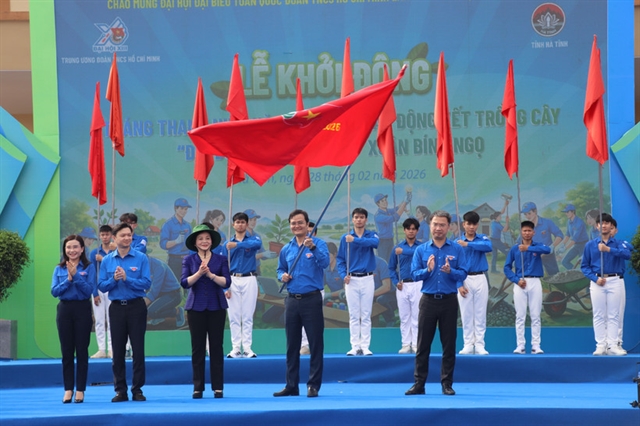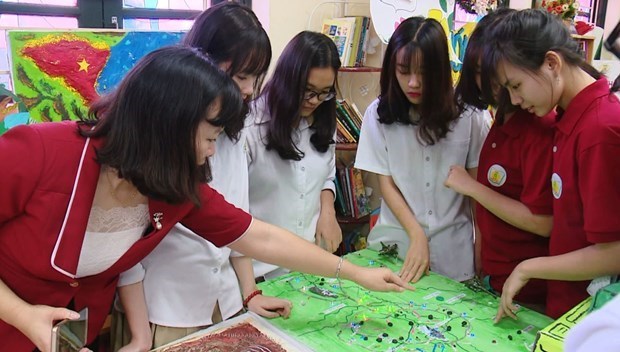 Society
Society

The new senior high school curriculum still ensures the role of history education, Deputy Minister of Education and Training Nguyễn Hữu Độ said.

|
| A history class at Phan Huy Chú High School in Hà Nội's Đống Đa District. — VNA/VNS Photo |
HÀ NỘI — The new senior high school curriculum still ensures the role of history education, Deputy Minister of Education and Training Nguyễn Hữu Độ said.
He was speaking after the controversial decision to make history an optional subject in the national senior high school curriculum that will take effect from the next academic year.
Beginning the 2022-23 school year, besides seven mandatory subjects, senior high school students (from grade 10 to 12) can choose to study five subjects from three groups; social science (geography, history, economy-law), natural science (physics, chemistry, biology) and technology and arts (technology, computers, and arts).
The move triggered public concerns that fewer and fewer students will choose history once it becomes optional and the subject is at risk of "disappearing" from the curriculum at many senior high schools.
Responding to the concerns, Deputy Minister Độ said under the new general education plan, the last three grades in senior high schools will be the career-oriented education phase after the nine-year of “basic education” from the first to ninth grades.
History will remain a compulsory subject throughout the basic education phase at junior high school level (from grade 6 to 9) where students are taught about general knowledge of the world’s and Việt Nam’s history from primitive to modern times, the deputy minister said, emphasising that all students will receive comprehensive education of Vietnamese history.
He further said that from the next academic year, in the curriculum from the sixth to twelfth grade 20 per cent of school time will be spent on education of local history.
Prof., Dr. Nguyễn Minh Thuyết, chief-editor of the new general education programme, said as history is a compulsory subject during the first nine school year of a student, it will provide students with basic knowledge to develop their own qualities and core competencies. — VNS

.jpg)


